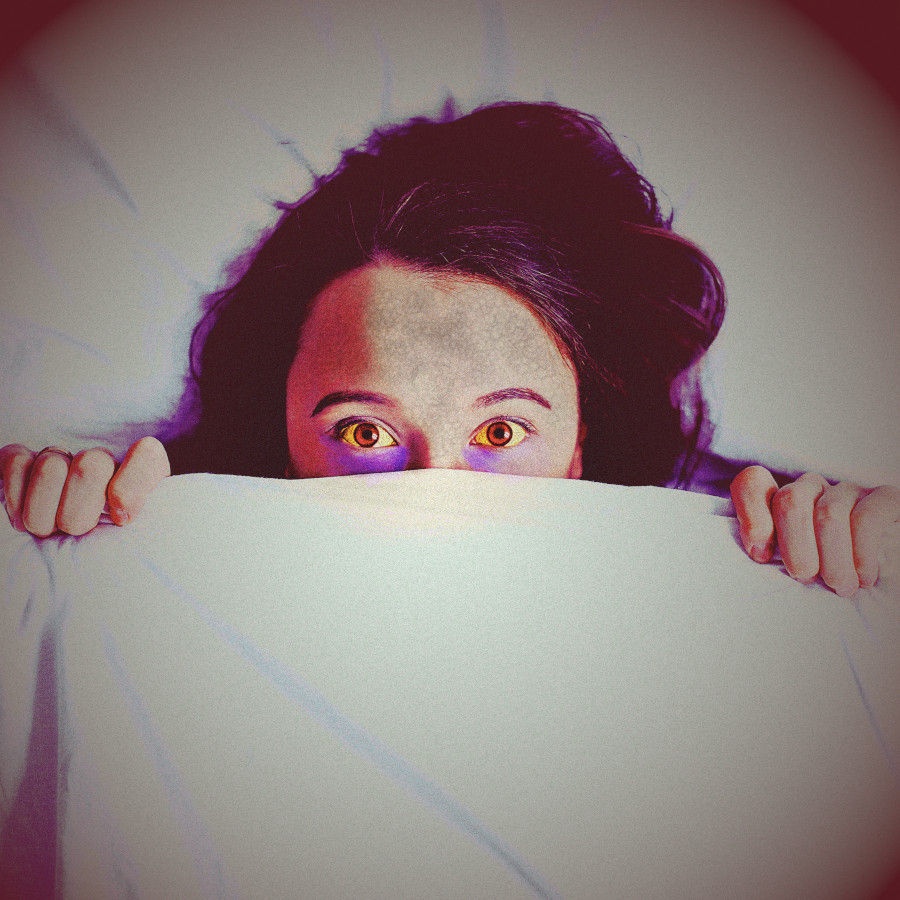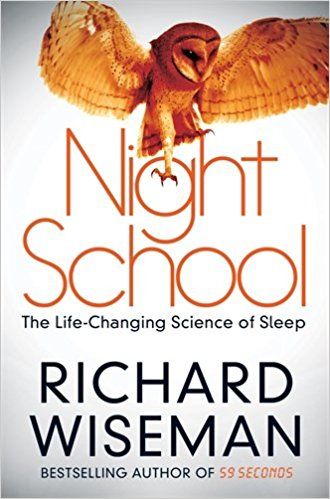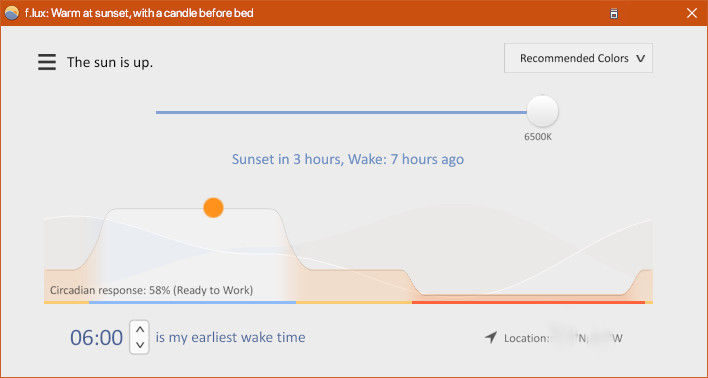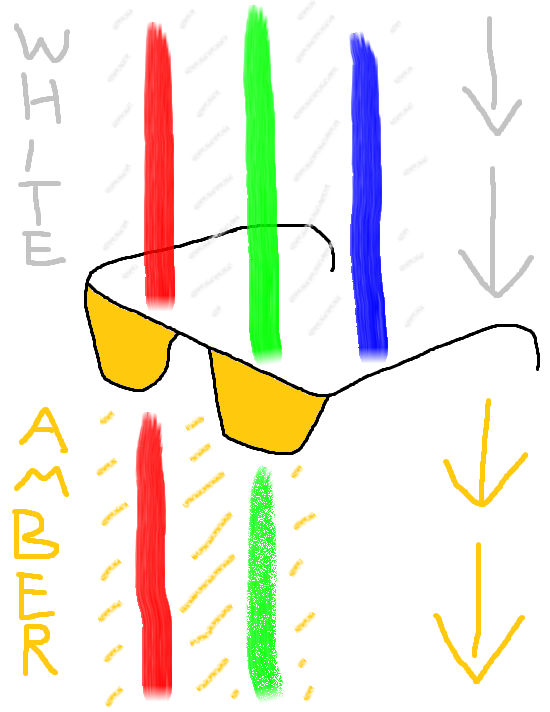Warning: This blog is old and deprecated. It may be wrong or misleading, and it does not represent the author's current positions.
Are you always tired and lazy? Do you suffer from overwhelming procrastination and a lack of focus? Get more productive with these strategies anyone can use to get to sleep easily and peacefully.
insert_linkWhy Do You Need More Sleep?
[caption id="attachment_3251" align="alignright" width="256"]
 You don't want to get to sleep that easily![/caption]
You don't want to get to sleep that easily![/caption]
Sleep deprivation is common amongst many people, proving the difficulty in getting to sleep easily. What's more, it's not rare—at all—to come across the person who doesn't truly understand the importance of sleep.
Sleep is indisputably invaluably important.
And the research shows this. However, our modern world in which we live today does not.
Why is this? It is because our society is 'always awake', so to speak; everywhere you go, there will be buzz as well as novelty—i.e. distractions.
Moreover, in a world driven by technology, there is no 'off' switch by default. For example, people are constantly dwelling upon countless yet frivolous activities, such as:
- Exploring social media
- Managing emails and other communications
- Consuming information content
- Otherwise surfing the Internet or using electronic devices
These technological factors contribute massively to people not getting sufficient sleep easily: too many late nights with your preferred source of procrastination! Naturally, sleep should be easy to obtain, right?
Well, in an unmercifully overengineered habitat, it is crucial that we first add to remove. In other words, take extra measures to reverse the effects of an environment promoting procrastination and condemning productivity.
More questions of productivity: Are Dual Monitors Worth It? [Don't Make My Mistakes]
insert_linkThe Benefits of Increasing the Amount of Sleep You Get
So, what do you have to gain from adding extra hours to your sleep portfolio? Despite reducing the time spent being awake each day, more sleep means more work output.
[caption id="attachment_3252" align="alignleft" width="449"]
 Indeed, death is a possibility.[/caption]
Indeed, death is a possibility.[/caption]
This might seem counterintuitive, but it makes a whole tonne of sense. After all, sleep, being a natural behavioural feature of human beings, is absolutely vital—there's a reason it exists.
You could die if you choose to simply not sleep at all. (Perhaps give it a month or so then you'll be joining the "I-have-so-much-time-but-I'm-too-tired-for-productivity" club.)
As a matter of fact, sleep helps to "clean up" your brain; imagine yourself as a grand estate and sleep as the caretaking team. If you don't get enough sleep, there isn't enough time to "clean" your brain hence it remains messy the next day.
Furthermore, this mess translates to inefficient thinking thus an absence for pure, unrivalled focus.
Conclusion: never fail to get insufficient sleep—you'll only be borrowing that time and more from tomorrow.
Sleeping is all about enabling you to do more in a shorter space of time.
Schedule-in your sleep: Should You Have Faith in Online Calendars? [Kill Procrastination]
Disclaimer: I am not a medical professional; do not take the advice in this article as professional medical advice.
insert_linkYou've Got to Read This Book Before Anything Else
If it had not been for the book I'm about to mention, I probably would not have realised the true power of sleep. Presented by Richard Wiseman—no-nonsense, only valid research:
Night School: The Life-Changing Science of Sleep
In the book, Night School, you will learn a tremendous deal about sleep. As well as being a life-changing spectacle, this results in it providing you with a fascinating, engaging read.
Of course, you know it's a great book when it has fun and intriguing quizzes throughout!
This book contains a wealth of tips and tricks to ensure you get the best night's sleep of your life. Trust me, you'll find yourself going into some serious depth such that you'll never find your way out!
[caption id="attachment_1373" align="aligncenter" width="330"]
 Do it![/caption]
Do it![/caption]
insert_linkEliminate Blue Light to Help You Get to Sleep Easily
One of the major ways in which electronic devices discourage healthy sleep is through the screens. Or, rather, the artificial blue light that they produce.
For you see, by nature, humans should only see blue light—from the sky—during the day. That's when we should be awake, as well.
Therefore, humans have evolved to feel active and awake as a response to blue light. Likewise, we will experience tiredness alongside complementary characteristics like reduced alertness in a dark environment, devoid of blue light.
If you wish to delve ever so slightly into the science, you'll enjoy reading about this process:
- Blue light is detected by the retina in the eye
- The brain is stimulated to release the hormone melatonin
- Melatonin prepares the body for sleep, contributing to tiredness
Delaying the process of releasing melatonin, artificial light sources (such as your phone) can be detrimental to your focus in the evenings. Nonetheless, you'll be glad to know there are ways of mitigating the associated risks—sleep easily without any evil drugs!
Take advantage of the 9 Effective Windows 10 Productivity Features for Beginners
insert_linkUse Software to Reduce Your Screen's Blue Light
 The first method of getting sleep easily is installing "f.lux" (available on Windows, Mac, Linux, Android, and iOS). To clarify, this program introduces an orange tint in the evening, thereby reducing the visible blue light.
The first method of getting sleep easily is installing "f.lux" (available on Windows, Mac, Linux, Android, and iOS). To clarify, this program introduces an orange tint in the evening, thereby reducing the visible blue light.
While this can be achieved in other solutions such as Windows 10's Night Light, f.lux goes that one step further.
For example, unlike Night Light, f.lux accounts for your wake-up time (which should be consistent). Accordingly, it allows for several levels of blue-light reduction as opposed to a binary "blindingly bright or invisibly orange".
It's also a slight bit more configurable and works with smart lighting. Equally, you could even hook the application up to an ambient light sensor, so it knows what pleases your eyes.
Other features include colour modes on-demand, in addition to automatic disabling of light effects when certain applications run.
Sneakily inducing a sense of guilt, f.lux present notifications reminding you how long it is until you wake up. This definitely ought to help you sleep easier by realising the ever-decreasing time you have to cram in some sleep.
insert_linkInvest in Some Amber-Tinted Glasses
[caption id="attachment_3255" align="alignright" width="364"]
 If we remove the blue altogether, and slightly reduce the green, we end up with an amber colour.[/caption]
If we remove the blue altogether, and slightly reduce the green, we end up with an amber colour.[/caption]
Software solutions are good, but they shouldn't be relied on wholly if you want to get to sleep easier. Alongside f.lux, you should treat yourself to a new pair of glasses—through which you can only partially see!
For you see, blue light does not exclusively come to your eye from your computer screen. What about your general house lighting?
Anti-blue light glasses come with amber-tinted lenses of various intensities. This is because removing the blue light leaves you with red and green, producing an amber colour.
If you're here to ensure you sleep easily, start wearing amber glasses at least an hour or two before bedtime. Ideally, you would want it to be a reasonably strong shade of amber to properly eradicate the blue light.
Note, too, that these glasses can reduce eye strain in front of computer screens for prolonged periods of time. However, during the day, you would probably be better off with a weaker intensity of amber.
Also, in the morning, you want blue light, so wake up to the sun and subsequently feel energised!
Stick to your sleep schedule: 9 Self-Control and Discipline Strategies: Break Free Now!
insert_linkCarve Out a "Calm Hour" Before Bedtime
In a similar way to blue light, mental stimuli—which engages the brain—is naturally going to obliterate quality sleep.
As a result, for anyone wishing to sleep easily every night without fail, here is my recommendation: dedicate an hour before the point of going to sleep to relaxing activities. I would prefer that these activities are worth your time, too, such as:
- Reading a book (or, even better, listening to one)
- Meditation or yoga
- A late-night walk
- Bedtime routine (shower, change clothes, and brush your teeth etc)
- Tidy up the house
- Write a list of your concerns as well as to-dos for tomorrow
- Perhaps do some form of daily evaluation of yourself or affirmations on paper
- Socialise in person but know when to simmer down
Additionally, avoid mentally stimulating activities that will leave your brain thinking hours after you've hopped into bed. Do not:
- Use electronic devices at all, including television
- Drink coffee or alcohol
- Perform intense exercises
- Encourage negative or otherwise problematic thoughts
- Drown yourself in bright light
- Do mentally demanding tasks (work)
- Worry about anything
There you go! Numerous way you can get started with to help your brain wind down and sleep easily. However, building this habit is a marathon, not a sprint, and it certainly won't be easy!
I have struggled with sleep for a long time, and these tactics have brought me some of my most productive days. Once you conquer the habit of sleep, "you will be done did laughing", as the kids say.
Get thinking (if it's not too late!) Are Macs Worth It? Most Revealing Arguments from a PC User


